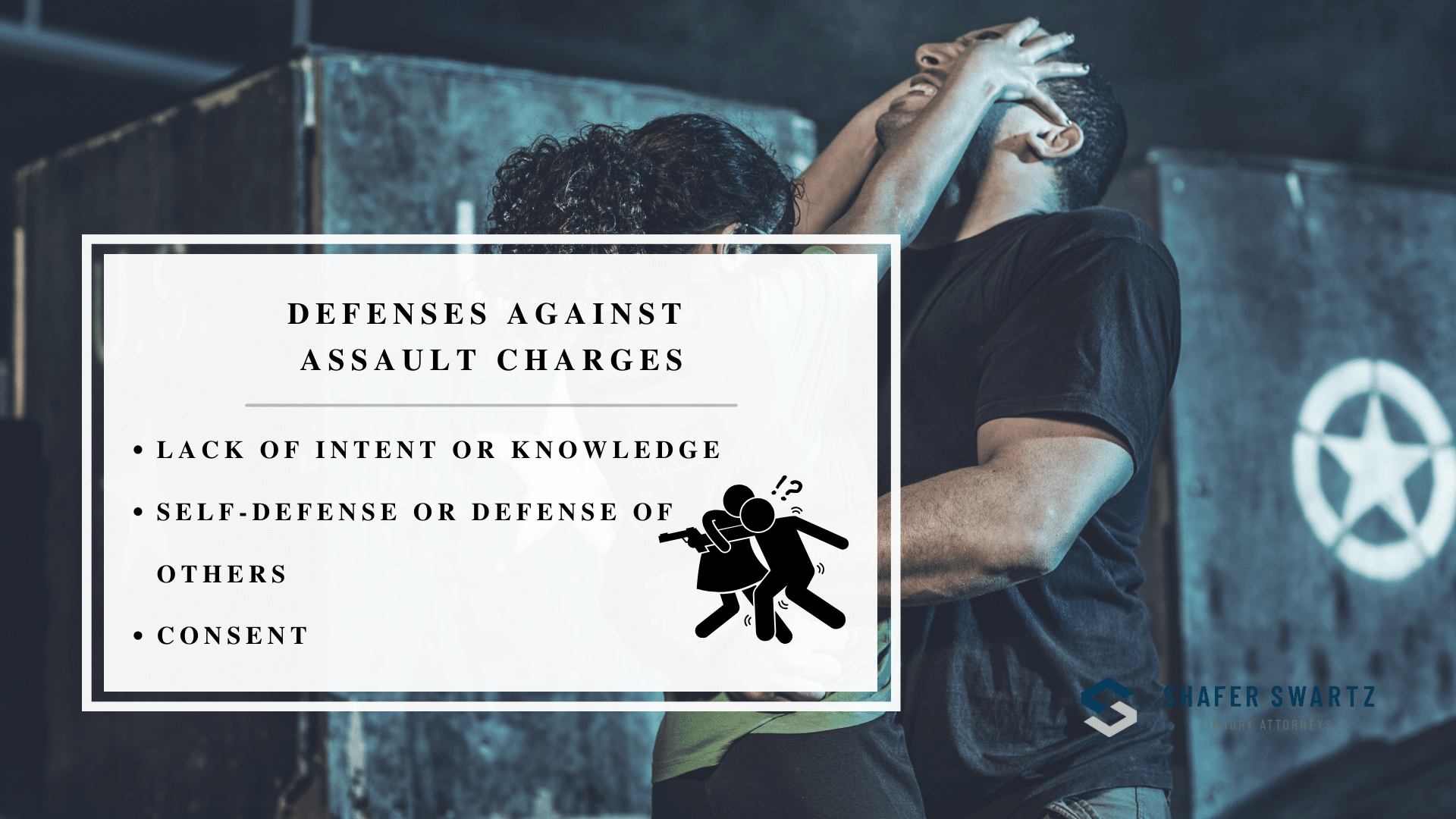In Michigan, intentionally pushing someone in a manner that instills fear for their safety, even if no physical harm occurs, constitutes a form of assault. People often associate assault with violent physical contact. However, in Michigan, you can be charged with assault even without physical touching. This is because intent is one of the main elements in assault charges. For example, if you swing an object toward a person in a manner that causes them to fear for their safety, even if the object does not make contact, you can still be charged with assault.
When confronted with assault or assault charges, swift legal aid is crucial. The intricate nature of assault cases highlights the necessity of hiring a skilled injury lawyer who possesses a deep understanding of Michigan laws. Their expertise will prove invaluable in navigating the complexities of your case effectively.
Understanding Assault Laws in Michigan
A “Simple Assault” or a Michigan Misdemeanor Assault charge is defined by one or both of the following descriptions:
-
- an unsuccessful battery attempt. For instance, swinging an object and missing.
- any act that would cause a reasonable person to fear or anticipate an immediate battery. For example, raising a hand to slap but stopping before actually touching.
In Michigan, assault and battery are separate crimes but often charged together. Battery refers to the act of causing physical harm, whereas assault involves the threat of inflicting such harm. The main difference between the two crimes is that assault does not require actual touching, while battery does. For example, if you raise your fist at someone without making contact, you can be charged with assault. However, if you hit someone, you can be charged with both assault and battery.
Assault Charges and Penalties in Michigan
Assault can take many forms, each characterized by a unique combination of factors. Here are some of them and their respective penalties:
| Types | Description | Penalties |
|---|---|---|
| Simple Assault |
|
|
| Domestic Assault |
|
|
| Aggravated Assault |
|
|
| Felony Assault |
|
|
Evaluating Pushing as Assault
Assume you are in line, and someone shoves you so hard you get injured. The question is, “Is pushing someone assault?” A push does not constitute assault in Michigan unless there is a criminal intent to cause fear or harm. Hence, if you cannot prove that the pushing was intentional, assault charges may be difficult to pursue.
Furthermore, if the push was accidental but led to severe injuries, you can pursue charges for negligence but not assault. You can file a legal action to seek compensation for your harm, including lost income, medical bills, and pain and suffering.
The degree of harm and level of intent also impact the severity of charges and penalties. For example, if someone intentionally pushed you with the intent to cause serious injury, you can file a felony assault charge. Meanwhile, a simple push without a weapon is considered a misdemeanor with less severe penalties.
Defenses Against Assault Charges
Although each assault case is different, there are common defenses you can use to defend yourself when facing assault charges. Here are some of them:
Lack of Intent or Knowledge
Since intent is essential in assault charges, the defendant must prove that the act was unintentional or that there was no intent to cause fear or harm. Additionally, the defendant’s injury lawyer must show that there was no imminent threat and that the victim’s fear was unreasonable under the circumstances.
Self-Defense or Defense of Others
Self-defense is a common defense in cases involving charges of assault and battery. If you make this claim, you assert that you had no choice but to use violence to defend yourself. Under Michigan’s self-defense law, you can use “deadly force against another individual” if your life or safety is in danger.
However, this does not mean that anyone can easily use the self-defense argument to justify killing or seriously injuring someone in response to a minor threat or injury. The defendant must prove imminent death, serious bodily injury, or sexual assault. For instance, if the attacker is a minor or cannot carry out the threat, self-defense with deadly force is unjustified.
Consent
The consent defense is often used in cases of alleged sexual assault. This defense argues that since the victim consented to the sexual encounter, the use of physical force cannot be considered assault. However, there are circumstances in which consent is deemed invalid. For example, the consent is not valid if the victim is below the legal age of consent or is mentally incapacitated. In addition, the victim may still be able to file an assault charge against the defendant if they later decide to revoke their consent during the incident.
We Can Help You Defend Against Assault Charges or File Suit
Assault charges can be complex, depending on the circumstances. Whether you are the victim or the accused, you should immediately consult an experienced injury lawyer familiar with Michigan state laws. Shafer Swartz PLC can help you understand your legal rights and increase your chances of success in court. We will represent you and help you navigate the legal system. For an appointment, reach us here or call (231) 722-2444.


